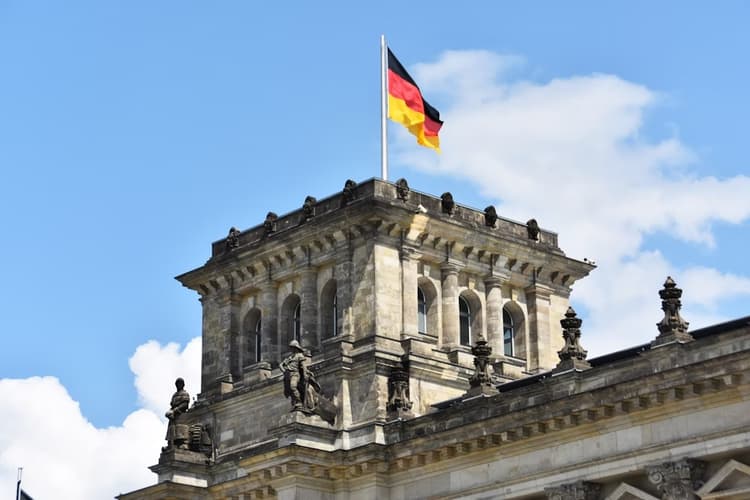
Planning to go to Germany or received your acceptance? Either way, you must be wondering about the German student visa. This article will navigate you through this process with ease! A German visa is not exceedingly difficult to get. However, the process can be long and time-consuming. It requires a significant amount of paperwork and persistence. But here’s a breakdown of things that you need to do to get that stamp on your passport.
Do You Need A German Student Visa?
If you are a non-EU or EEA student, you need a visa. On the other hand, for students from the US, Canada, Australia, South Korea, Israel, New Zealand, and Japan, you do not need a visa to enter Germany, but you would need to register at the Ausländeramt or foreigner’s office. If you are from any other country, you need to get a D-type German National Visa to travel here.
This visa is generally valid for 90–180 days and you need to apply for a residence permit or Aufenthaltserlaubnis within this period to stay in the country legally for the duration of your course. The foreigner’s office might also give you a Fiktionsbescheinigung in case your permit takes long. This document does the same job as your residence permit and allows you to freely travel within the Schengen area.
To know which category of German Visa will be applicable for you please use the Visa Navigator tool by the German Federal Foreign Office:
https://visa.diplo.de/en/index.html#/vib/schnelltest
Getting a Visa Appointment
You may get a German student visa if you’re a foreigner and have received a letter of complete admission for studying at a German university, equally recognized institution, university of applied sciences, college of arts and music, or other equally recognized higher education institution. The studies you can do with a German student visa are either full-time university studies or preparatory measures before such studies, i.e., Foundation course.
Different Study Types with a German Student Visa?
A German student visa can be granted to you if you’re expecting to attend any of the following study types:
- Full-time academic studies.
- German language courses for studies.
- State preparatory college ‘Studienkolleg.’ A course you’ll have to undertake as a foreigner whose school-leaving certificate isn’t recognized in Germany. Once completing the course, you’ll be sitting for the test “Feststellungsprüfung.” If you succeed in passing the test, you will get a certificate known as a university entrance qualification. With that on your hand, you’ll be able to apply for university admission in Germany.
- Propaedeutic course
- Mandatory preliminary internship.
Find the German Consulate/Embassy for your country
Start by finding the consulate where you need to apply for your visa. You might have to go to a particular consulate based on your residence in your home country. You can find the list of German Missions in your country on the Federal Foreign Office website. Make sure you are applying to the right Consulate/Embassy based on your area of residence. Any other Consulate/Embassy of Germany located outside your home country will not accept your documents and you will not be able to proceed with your application further.
Book an appointment for a German student Visa

Booking an appointment for a German student visa can be quite cumbersome. But if you know how and when to book, it only comes down to persistence.
- To start with, you should always book an appointment good time before your classes begin. You must keep in mind that, the processing time of your Visa application will vary from country to country. Thus, it is recommended that the students should contact the local German consulate in their home countries for receiving the latest update on this regard to schedule their visa appointment accordingly. This will not just save time but reduce the possibility of delay.
- In certain countries, the German mission also allows you to apply for your National Visa through VFS where the process might be slightly smoother, albeit at a nominally higher cost.
- It is also important you start the entire process at least three months before commencing your studies because the embassy is not concerned about the time when your course will begin.
Requirements to apply for a German Student Visa
An offer letter to study in or an enrollment certificate from any German university, and the confirmation letters of your Blocked Account and health insurance received from Coracle, with these three things taken care of, you can apply for the student visa at a German embassy or consulate in your home country. The application process is fairly straightforward, but you may have to provide more documents. See the full check list of documents below.
Checklist of required documents to apply for a German student visa:
- Two duly completed national visa application forms.
- Valid national passport. (Read passport requirements)
- Two recently taken biometric portrait photographs. (Strict requirements)Biometric photos should be 45 mm in height and 35 mm in width. An acceptable format must display the applicant’s facial features from the bottom of the chin to the top of the head, counting both the left and right sides of the face, with the applicant’s face centered in the photograph. The applicant’s face must occupy around 70–80% of the image, with a suitable facial height of 32–36 mm. Additionally, the applicant’s head and haircut must be entirely visible in the image. A Schengen visa application may be rejected if any photos presented are of a size other than the one required for Europe visa photos.
- Proof of admission at a German education institution. (Send any of the following).
- University admission letter “Zulassungsbescheinigung”.
- Letter of admission in a foundation course. Issued by a Studienkolleg.
- Letter of admission in the propaedeutic course.
- Letter of admission in a preparatory German language course.
- Proof of German language proficiency. (For German-only and mixed-language study programs)
- German Language University Entrance Examination for International Applicants (DSH).
- Test of German as a Foreign Language (TestDaF).
- Goethe Institute German Language Diploma (GDS).
- German Language Diploma of the Standing Conference of the Ministers of Education and Cultural Affairs, Level II (DSD).
- Proof of English language proficiency. (For English and mixed-language study programs).
- Test of English as a Foreign Language (TOEFL): Accepted results are PBT (paper-based test) 550 Points, CbT (computer-based test) 213 Points, and IbT (internet-based test) 79-80 Points.
- The International English Language Testing System (IELTS): Accepted scores by German universities are 5 – 6.5.
- Authenticated certificates of earlier education.
- German university entrance qualification “Abitur”: If you’ve studied in a German education provider abroad. (If not, send the following documents).
- Recognized foreign academic qualification: It must show you have a qualification equally recognized as the German Abitur.
- Academic records or transcript.
- Curriculum vitae. It has to be accompanied by evidence of previous and current internship and work experiences if any.
- Means of subsistence “Finanzieruungsnachweis.” The evidence you provide must show you have enough money to cover living, accommodation, and study costs. (Send any of the following).
- Blocked bank account: One of the easiest and fastest ways to open a German Blocked Account is through Coracle and Coracle Prime. The blocked account provided by Coracle is accepted by German embassies/consulates all around the world. Learn how to open a Coracle blocked account.
- Letter of commitment by a resident “Verpflichtungserklärung “. A person living in Germany, showing they’ll be covering your accommodation and/or other living costs while you’ll be here.
- Letter of declaration by a parent: It has to show their commitment to support you financially during your stay here. It must be supplemented by their bank statements for the latest 6 months.
- Scholarship awarding certificate: It must show you as a receiver and the amount of financial coverage granted to you by this scholarship.
From January 2023, the amount required by the German Embassy/Consulate to be deposited into the blocked bank account when applying for a student visa to Germany will be €11,208 (€10,332 before).
Link to official statement by the Federal Foreign Office of Germany:
https://www.auswaertiges-amt.de/en/sperrkonto/388600
- Travel Insurance: It must have at least 30,000 EUR coverage, and it must be valid for at least 3 months. Coracle provides travel insurance to students which meet all the requirements and is accepted by all German consulates worldwide.
- Motivational letter: You’ll have to express the reason for choosing the specific university or study program. Mention also your study and plans and how these studies will be improving your career and life.
- Marriage certificate: (Send this if you’re married). Support that with a birth certificate of any child (If related).
- Proof of having paid the German student visa application fee.
The decision about your application is based on the information and the supporting documents you provide. Therefore, these documents have to be carried as originals, accompanied by two photocopies of each.



